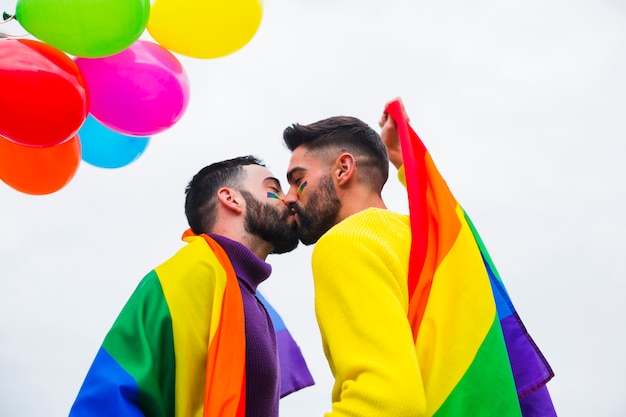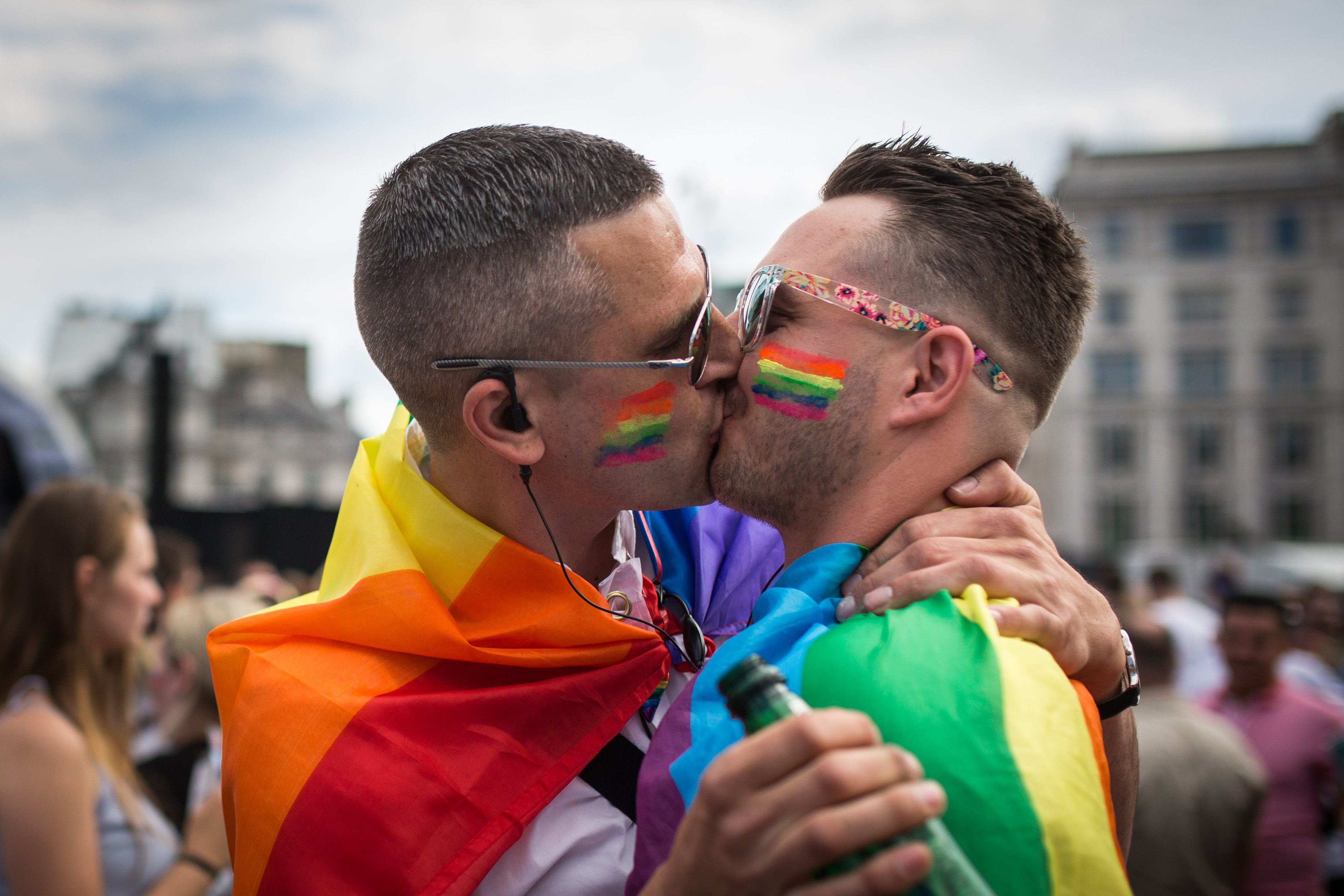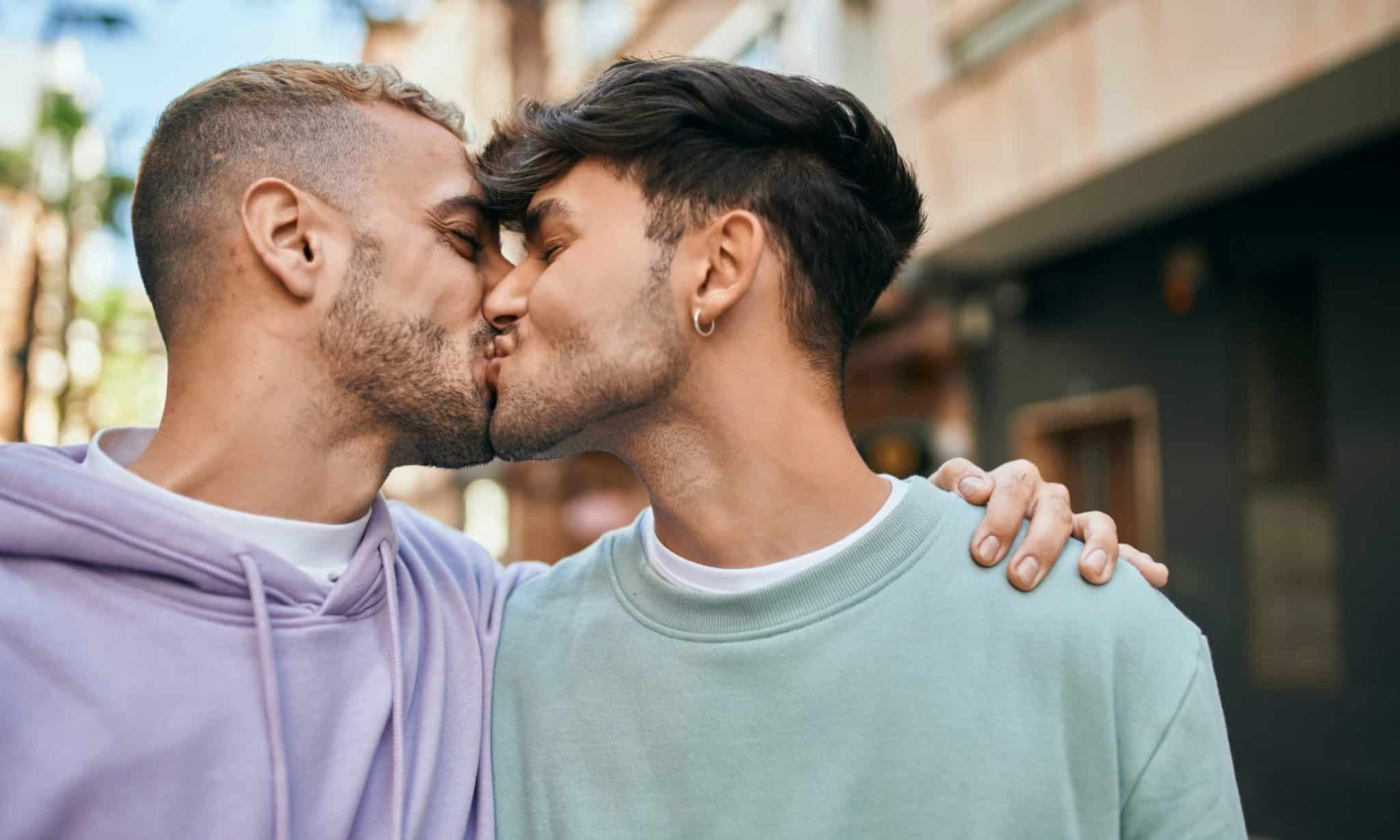Figuring out who you are, especially when it comes to feelings for others, can feel like a big puzzle, you know? Many people look for ways to make sense of their experiences, and for those who are gay, this often involves a personal journey of discovery and connection. This article looks at what it means to be gay, how people connect with this part of themselves, and the ways communities come together to offer help.
We will talk about what sexual orientation means, and how it is different from gender identity. We will also touch on some of the real-life situations gay people might face. Our goal is to offer clear, helpful information for anyone wanting to learn more about this important part of human life, so to be honest, it's a good place to start.
Whether you are someone exploring your own feelings, a family member wanting to offer the best help, or an educator hoping to create a safe place, this guide is for you. We will share facts and resources, giving you a better picture of what it means to live as a gay person today, and how people can truly thrive, in a way.
Table of Contents
- What is Sexual Orientation?
- Gender Identity and Being Transgender
- Challenges and Finding Safety
- The Power of Coming Out
- The Need for Better Education
- Resources for Support and Information
- Frequently Asked Questions
- Finding Your Way Forward
What is Sexual Orientation?
Sexual orientation is a deep, lasting way a person feels drawn to others. It is about who you feel emotional connections with, who you want to be romantic with, and who you are sexually attracted to. This can be men, women, or both sexes, you know.
It is not just about actions, but a core part of who someone is. It is a part of identity that truly shapes how people see themselves and their place in the world, so to be honest, it is quite central.
More on Attraction
This attraction is a key piece of someone's identity. It means feeling a pull toward another person. This pull can be very strong, and it stays with a person over time, in a way. It is not something that changes easily or often.
For some, this means being drawn to men, which is typically called being gay. For others, it is a pull towards women, or perhaps both men and women, you know. Each person's experience is truly their own, and that is important to remember.
Identity and Social Ties
Sexual orientation is more than just who someone is attracted to. It is also a component of identity. This means it shapes how people see themselves, how they behave, and the social groups they choose to be a part of, so it is quite broad.
It can lead to joining communities or groups where people share similar experiences. These connections can be very important for a person's well-being and sense of belonging, you see. It helps people feel less alone, in a way.
Gender Identity and Being Transgender
Transgender is a general term for people whose inner sense of being male or female is different from what was expected when they were born. It is about how they truly feel inside, and that is a very personal thing, you know.
This inner feeling is called gender identity. For transgender people, this identity does not match the gender they were assigned at birth, which is based on physical traits, you see. It is about who they know themselves to be, basically.
Understanding Gender Expression
Gender expression is how a person shows their gender to the world. This can be through clothes, hairstyles, voice, or actions. For transgender people, their gender expression might also be different from what society expects for the gender they were assigned at birth, you know.
This difference in expression is a natural part of their identity. It is how they truly show who they are, and it is a really important part of their journey, as a matter of fact.
Challenges and Finding Safety
Even today, some gay people worry about what might happen if others find out about their sexual orientation. This can be a very real concern for many, you know. The thought of losing a job or facing bad treatment can be quite stressful.
This worry can make people hide who they are. It is a sad truth that some places still have hostility, which makes it hard for people to be open and truly themselves, so it is a big issue.
Workplace and School Situations
In some workplaces, people who are gay might worry about being treated unfairly. This could mean not getting a promotion or even losing their job if their sexual orientation is discovered. It is a very real fear for some, you know.
Schools can also be places where gay, lesbian, and bisexual students face hostile acts. This can make learning very difficult and unsafe. It is why having good information and resources for educators is so important, to be honest.
Moving Past Harmful Practices
There have been efforts to help gay and bisexual men recover from something called conversion therapy. This is a practice that tries to change a person's sexual orientation, and it can be very harmful, you know.
Support for those who have gone through this is very important. It helps people heal from the negative effects and accept themselves for who they truly are, which is a really good thing, you see.
The Power of Coming Out
Coming out means telling others about your sexual orientation. It is a very personal decision, and it can be a big step for many people. It shows a level of comfort with one's own identity, you know.
For some, it brings a great sense of relief and freedom. It allows them to live more openly and honestly, which can be very good for their overall well-being, as a matter of fact.
Younger Generations and Openness
A good number of gay and bisexual teenage boys from Generation Z have told their parents about their sexual orientation. This is a big change from past times, you know. It shows a growing openness among young people.
Researchers have seen this increase in young people feeling comfortable enough to share this part of themselves. This trend suggests a more accepting environment, which is a really positive sign, in a way.
The Need for Better Education
Many gay and bisexual adult men, along with trans people, have said they wished they had received more complete and inclusive sex education when they were younger. This is a common feeling, you know.
They felt that the education they got did not cover their experiences or identities. This lack of information can leave people feeling confused or isolated, so it is a pretty big gap.
Sex Education That Includes Everyone
Comprehensive sex education should talk about all kinds of relationships and identities. It should include information that is helpful for gay, bisexual, and trans people, you know. This makes sure everyone feels seen and understood.
When sex education is truly inclusive, it helps young people grow up with a better picture of themselves and others. It promotes understanding and respect for everyone, which is really what we want, you see.
Resources for Support and Information
Finding good, reliable information and support is very important for gay, bisexual, and trans people, and for those who care about them. There are many places to turn for help, you know.
These resources can offer facts, guidance, and a sense of community. They are there to help people feel less alone and more prepared to live their lives fully, in a way.
Guidance for Schools
There are resources like "Just the facts" that give information to school leaders, teachers, and other school staff. These guides help them handle sensitive topics that come up with gay, lesbian, and bisexual students, you know.
Having this kind of guidance means schools can be safer and more welcoming places for all students. It helps create an environment where everyone can learn and grow without fear, which is pretty important.
Psychological Study and Help
Certain groups, like Division 16 (School Psychology) and Division 44 (Society for the Psychological Study of Lesbian, Gay, Bisexual and...), create helpful guides. These guides offer information from a psychology point of view, you know.
They are part of a series of informational guides. These resources help professionals and the public better understand the experiences of lesbian, gay, and bisexual people from a mental health perspective, which is very valuable, you see.
Frequently Asked Questions
Here are some common questions people ask about sexual orientation and gender identity:
What is the difference between sexual orientation and gender identity?
Sexual orientation is about who you are drawn to emotionally, romantically, or sexually. Gender identity is your inner sense of being male, female, both, or neither. These are two different parts of a person, you know. Someone can be a gay man (sexual orientation) and also be a transgender man (gender identity), for example.
Do all gay people face hostility or discrimination?
While many gay people do face challenges like hostility or discrimination, not everyone experiences it in the same way. Some people live in more accepting places or have supportive families. However, the risk of unfair treatment is still a real concern for many, so it is something to think about.
Why is inclusive sex education important for gay and trans people?
Inclusive sex education makes sure that everyone sees their experiences and identities reflected in what they learn. For gay and trans people, this means getting information that truly applies to their lives and relationships. It helps them feel less alone and more prepared, you know, and it can help prevent feelings of being left out.
Finding Your Way Forward
Understanding what it means to be gay, to make sense of one's identity, and to truly find support is a journey for many. It involves recognizing deep feelings of attraction and accepting who you are. It also means seeing the bigger picture of how society views different people, you know.
For more insights into creating supportive environments, Learn more about acceptance and belonging on our site. You can also explore additional resources that help foster a better world for everyone by visiting our dedicated support page. Remember, finding your path and connecting with others is a powerful thing, so keep learning and growing, as a matter of fact.
We can all play a part in making communities safer and more welcoming. This means learning, offering kindness, and standing up for fairness. It helps everyone, you see, to feel truly at home in their own skin, and in the places they live, too it's almost a given.
The conversation about sexual orientation and gender identity keeps growing. It is important to stay informed and open to new ideas. By doing so, we help create a world where everyone can live with dignity and respect, which is pretty much the goal, you know. It truly makes a difference in people's lives.
For more information on LGBTQ+ issues and support, you can visit a reputable organization like The Trevor Project.



Detail Author:
- Name : Mr. Sim Friesen
- Username : ansel38
- Email : gus64@friesen.biz
- Birthdate : 1986-01-31
- Address : 4276 Hettinger Mission West Irwinmouth, MT 14105
- Phone : +1-907-393-8153
- Company : Quitzon Inc
- Job : Human Resources Manager
- Bio : Mollitia iste quos omnis nostrum non sed occaecati. Adipisci voluptatibus rerum sit est expedita nulla quis sed. Hic eum minus eum omnis architecto. Repudiandae id cumque voluptas.
Socials
twitter:
- url : https://twitter.com/brown1994
- username : brown1994
- bio : Nihil atque inventore aut debitis ipsa. Quos doloribus magnam earum aut voluptatibus iusto. Cum quia est sit aut.
- followers : 5190
- following : 1194
linkedin:
- url : https://linkedin.com/in/brown2023
- username : brown2023
- bio : A placeat veritatis ullam error.
- followers : 6223
- following : 1701
tiktok:
- url : https://tiktok.com/@brownm
- username : brownm
- bio : Dolorem voluptates suscipit odit omnis autem consectetur dignissimos.
- followers : 667
- following : 395
instagram:
- url : https://instagram.com/marion.brown
- username : marion.brown
- bio : Quasi autem voluptatem saepe quidem. Saepe quam officiis harum molestiae.
- followers : 1282
- following : 2067



























